2014 World Cup Roundtable: Planet Futbol's prediction panel
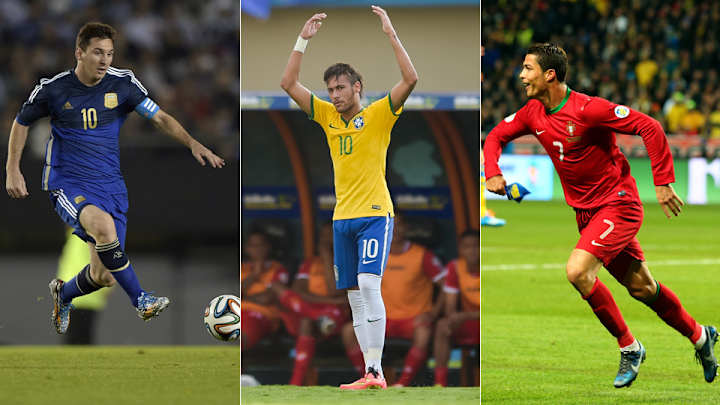
The 2014 World Cup kicks off Thursday, when Brazil and Croatia open the highly anticipated competition in Sao Paulo.
Every World Cup is met with excitement and intrigue, but there's something extra special about the 2014 edition. Perhaps it's the host and its tradition of excellence. Perhaps it's the loaded tournament field. Or perhaps it's that transcendent stars like Lionel Messi and Cristiano Ronaldo are in their primes at the most ideal time. Regardless, there is quite the chapter of international soccer that is on the cusp of being written.
Our reporters on the ground in Brazil -- Grant Wahl, Brian Straus, Jonathan Wilson and James Young -- and our contributors throughout the tournament -- Liviu Bird and Ben Lyttleton -- offer their picks as the world's spotlight gets firmly planted on Brazil for the next month:
Who will win the World Cup?
WAHL: It’s Lionel Messi’s time. Coach Alejandro Sabella has built a team around Messi that includes some majestic talents (led by Sergio Agüero) and complementary players that get the most out of the Albiceleste. An easy group and a likely promising path on Argentina’s side of the bracket should help the Argentines win their third World Cup title.
STRAUS: Like the 1994 squad led by Romário, this Brazilian team probably won’t be included in the pantheon of jogo bonito greats. But like that ‘94 side, the 2014 vintage is sturdy, well-coached and due. Manager Luiz Felipe Scolari, who guided the Seleção to the ’02 World Cup title, has built a team that’s difficult to score against (Thiago Silva and David Luiz anchor a defense that’s yielded two goals during a nine-game win streak) and boasts just enough firepower to make a difference. Toss in the fact that Brazil hasn’t lost in official competition on home soil since 1975 and you have a recipe for that elusive sixth star.
WILSON: Argentina. If Brazil is overwhelmed by the pressure of being hosts, Alejandro Sabella's side can take advantage. The Albiceleste are well-balanced, defensively sound and have a forward line not only of extraordinary ability but also variety, with the close technical ability of Lionel Messi and Sergio Aguero allied to the aerial prowess of Gonzalo Higuain. Spain is probably over the hill while Germany has major defensive issues to resolve.
LYTTLETON: Spain. The defending champions are the most underrated of the favorites, but short of saying Xavi Hernandez is a bit injury-prone, it's for no great reason. Vicente del Bosque has evolved the squad brilliantly since 2010, and we could see some new stars like Koke and Diego Costa, who have a great link-up at Atletico Madrid, emerge. The fact they know how to win tournaments sounds obvious but is actually a big advantage.
YOUNG: With so many contenders and no real favorite, the question feels like a bit of a lottery, but I will go for Argentina, based on comfortable group draw in terms of climate, distance and opposition, plus pure attacking talent. Brazil will be up there, too, of course, but there are worries about mental fragility and dependence on the brilliance of Neymar.
BIRD: It’s hard to bet against Brazil, the host nation that demolished the field in last summer’s Confederations Cup. It would be quite a spectacle to see Brazil face Argentina in the final, pitting FC Barcelona teammates Neymar and Lionel Messi against one another in the world’s biggest game. Keep in mind, a European team has never won a World Cup in the Americas.
Which nation will disappoint the most?
WAHL: The Netherlands. The 2010 World Cup runner-up is heading for another loss against Spain in its opener, and it won’t get ay better from there in a group where Chile is also a threat. Dutch central midfielder Kevin Strootman is out for the tournament with an injury (as is Rafael van der Vaart), and this team is looking more like Euro 2012 Holland than World Cup 2010 Holland.
STRAUS: One of the three former champions in Group D won’t survive the first round, and the guess here is that England will be the odd team out. The Three Lions just don’t have the attacking presence or creativity to unlock the likes of Italy and Uruguay, two rugged sides that know how to defend. England hasn’t qualified for a World Cup and then been eliminated in the group stage since 1958.
WILSON: Ivory Coast. The golden generation is aging and they’re increasingly reliant on Yaya Toure, who isn’t fully fit. Didier Drogba is 37 and unlikely to last all three matches in a week and a half, while Gervinho’s form comes and goes. Add in the perennial issue of the unreliability of Boubacar Barry in goal and the lack of pace in the center of defense, plus the less than convincing coaching of Sabri Lamouchi, and it becomes hard to see how they could get out of their group.
LYTTLETON: Brazil, because anything short of winning the tournament will be a disappointment for the host. It’s important for the competition that Brazil goes a long way, but I can see too many weaknesses in the side – at center forward, behind both fullbacks and in goal – for it to win the whole thing. I can see Brazil losing in the semifinal, at which point the country will go into national mourning.
YOUNG: Brazil if it does not win it - the host nation's febrile social and political climate demands only death or glory. Otherwise a number of big European teams - Germany or Italy, for example. Heat and travel distance will be a huge factor, not just because of tiredness, but also in terms of mental stress and necessary changes of approach. Adaptability and resourcefulness will be of vital importance.
BIRD: With such a young and inexperienced team, the Netherlands could easily lose out to Spain and Chile, failing to make it to the second round. If any manager can get it done, it’s Louis van Gaal, and his tactical system has looked interesting in the build-up to the final tournament, but Spain and Chile are more dynamic in attack than Holland has faced in Ecuador, Ghana and Wales.
Which nation will surprise the most?
WAHL: Chile. La Roja is a hipster favorite these days, not least because coach Jorge Sampaoli’s team has played well all year in friendlies against Germany and in a win at England. If Arturo Vidal (the best player in the Italian league) can be at close to full strength after an injury scare, the Chileans will advance from their group at the expense of the Netherlands.
STRAUS: Awful in qualifying and rescued only by the fact that the U.S. felt like winning a meaningless game in Panama, Mexico is going to take that gift and run with it. El Tri always gets out of their group, and this team will keep the streak going with a do-or-die win over Croatia in the first-round finale. Striker Oribe Peralta got it done at the Olympics and will make a difference in Brazil.
WILSON: I’m not sure if it counts as a surprise given how well they’ve played over the last six months or so, but Sampaoli has restored the aggression of his mentor Marcelo Bielsa to Chile. They are quick and dynamic and have genuine attacking class in Alexis Sanchez, plus their back three and hard pressing poses opponents problems they’re not used to facing.
LYTTLETON: France. It has a comfortable group, and coach Didier Deschamps has ridden the wave from its unlikely comeback from 2-0 down to Ukraine to qualify via the UEFA playoffs. Even losing Franck Ribery won’t knock its stride. The squad is united, youngsters like Raphael Varane and Paul Pogba are becoming important players and Karim Benzema even smiled last week. I think Les Bleus could reach the semifinals.
YOUNG: Assuming dark horses such as Belgium are no longer true surprises, perhaps England, if only because expectations are low and a young team looks set to enjoy itself. If it crawls out of a tough group, the Three Lions face a winnable round of 16 game before a spicy potential quarterfinal against possibly Brazil or Spain.
BIRD: Belgium is too much of a known quantity to be a surprise anymore, so I’ll have to go with the two Balkan nations: Croatia and Bosnia-Herzegovina. Croatia in particular could be difficult to beat, with experience all over the field and dynamic possibilities in central midfield, headlined by Ivan Rakitić and Luka Modrić. To its credit, Bosnia boasts attackers such as Miralem Pjanić and Edin Džeko.
Who will win the Golden Boot?
WAHL: Neymar. I have Brazil advancing to the final, and a big reason will be Neymar scoring just as often as he did during last year’s Confederations Cup run. Perhaps more than any other player in the tournament, Neymar has the pressure to perform in front of his home fans, so look for him to try to create as many goals as possible.
STRAUS: Lionel Messi. It’s easy to remember his struggles in South Africa and forget that he’s pretty much scored at will since. And not just for Barcelona. He tallied 10 goals in World Cup qualifying (second only to Luis Suárez in South America) and now has plenty of support with the likes of Sergio Agüero and Ángel Di María. Argentina’s first deep World Cup run since 1990, when it finished second, will set the stage.
WILSON: It’s rare the top scorer does not play in seven matches, so that means it has to be somebody who’ll get to the semifinal. Germany was prolific in qualifying, which perhaps brings Thomas Muller into play, but such are their attacking riches that the goals may be spread out. Neymar or Messi are obvious answers, but it may be that Higuain takes on more of the burden for Argentina, or that Fred, who outscored Neymar in the Confederations Cup, proves his worth.
LYTTLETON: Lionel Messi. OK, it’s obvious and I toyed with picking Sergio Aguero, but why not the Argentina captain? His record since Alejandro Sabella took charge is 20 goals in 24 games, and he finally is replicating his Barcelona form in an Argentina shirt – even if the national side plays a counterattack style, more like Real Madrid. Messi could rack up three goals in the group and a few more in the knockout stage to clinch the Golden Boot.
YOUNG: Sergio Aguero. An arch goal sniffer at the tip of one of World Cup's most potent attacking forces. An army of rowdy visiting fans may provide a greater push than the pressure imposed by Brazil's overly demanding multitudes.
BIRD: If he’s healthy enough to play and can continue his unbeatable club form, Luis Suárez could have a lot of success against the subpar defenses of Costa Rica, England and Italy. Then again, Messi faces Iran and Nigeria, both of which are primed to leak goals against top opposition.
How will the USA fare?
WAHL: Out in the group stage. It’s possible for the U.S. to play OK and not advance from the most difficult group, and that’s the sense I have right now. Germany is the class of the group, and Portugal, Ghana and the U.S. will slug it out for the second spot. I’d say the U.S. has about a 40 percent chance of advancing.
STRAUS: American prospects are on the rise. Klinsmann’s team is fit, confident and healthy, but that may not be enough to get out of a deep and difficult Group G. Well prepared and primed for vengeance, the U.S. will open with three points against Ghana and and finish the first round 1-1-1, but miss out on the knockout stage on goal differential. Nevertheless, a solid performance will see Klinsmann’s method and mandate reaffirmed.
WILSON: Moderately. I’ve never been entirely convinced by Jurgen Klinsmann as a coach and nothing I’ve seen of him with the USA has persuaded me. My sense is the great U.S. explosion isn’t far away, but given the toughness of the group I suspect it may be in four years’ time rather than in Brazil.
LYTTLETON: I have been down on the USA’s chances ever since the draw, feeling it was destined for the wooden spoon in Group G. But in the last week, I feel something has clicked: Jozy Altidore scored a pair of goals, Fabian Johnson has done well at fullback and the three-man midfield with Kyle Beckerman is smart. On the other hand, Ghana’s preparations have gone south, with defensive injuries and worries in attack . So I will go for USA to finish third in the group, just ahead of bogey team Ghana.
YOUNG: The send-off series provided great hope. Backed by potentially huge numbers of fans, a fired-up team could sneak through a group where more storied rivals such as Portugal and Germany are troubled by injury and self-doubt. Industriousness ensures games will be tight, and much will depend on whether strikers such as Jozy Altidore will be ruthless enough to take advantage.
BIRD: Before the friendly against Nigeria, it looked like the U.S. would play three games and go home. After that match, it seems the U.S. has some hope — but probably only against Ghana. The German and Portuguese attacks will offer much sterner tests for the back line, which has looked vulnerable individually and collectively in the tune-up games.
When it’s all over, this World Cup will be remembered most for _______?
WAHL: Messi. If he can lead Argentina to the World Cup title, he’ll finally have done everything to be considered the greatest player of all time.
STRAUS: Being a positive rallying point for the people of Brazil. The build-up to this World Cup has left many feeling alienated and frustrated. A Seleção’s title run will highlight their country’s potential and, ideally, act as a catalyst for those who believe that answers can be found within.
WILSON: Hopefully it’ll be remembered as the tournament that saved the World Cup, stuffed with drama and high quality amid a carnival atmosphere. But I fear it’ll be remembered for chaos at the airports and stadiums, for inflated prices and the whiff of tear gas on the breeze.
LYTTLETON: Hopefully, the best team winning the tournament. In this era of PlayStation footballers with the likes of Messi and Ronaldo scoring so prolifically, it would be nice if the World Cup winner was the best all-around team. I’d rather that than talking about dodgy referee decisions, players struggling in the heat, or troubles in the host country. Oh, and a penalty shootout or two would be fun!
YOUNG: Brazil. The hope is that people will remember that the World Cup is, after all, only a soccer tournament, and the debate over the successes and failures of this most complex of nations, and the fight over the suffering and well-being of its people, will continue long after FIFA has packed up and gone home.
BIRD: Unfortunately, the off-field issues in Brazil will be difficult to overcome. Still, the host nation should put together a deep run that brings the country together. If last summer’s Confederations Cup can be considered as foreshadowing, a legend (Neymar) will be confirmed with a great individual performance to carry Brazil deep into the tournament — quite possibly lifting the trophy.
GALLERY: 25 Players to Watch at the World Cup
25 Players to Watch at the World Cup
Cristiano Ronaldo, Portugal
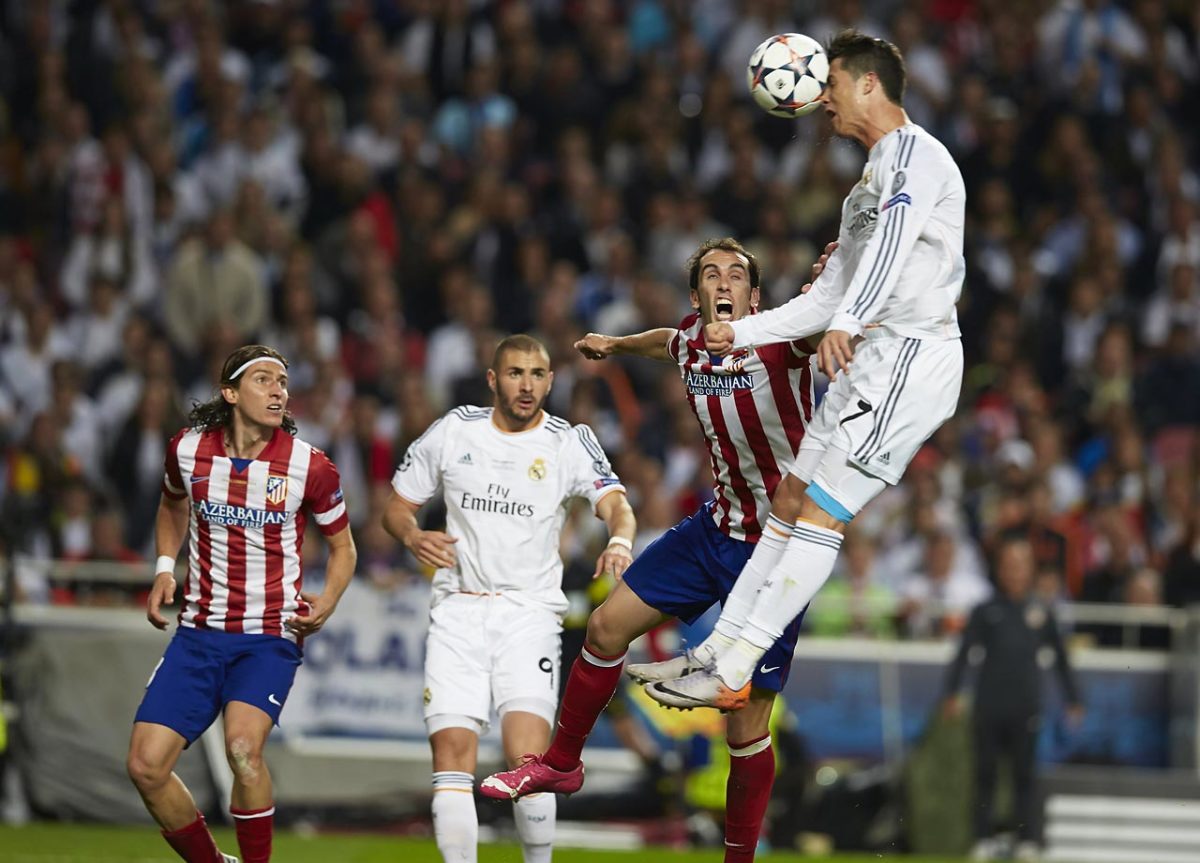
The reigning Ballon d’Or winner just helped Real Madrid win its 10th UEFA Champions League title as well. His supporting cast isn’t as impressive as Lionel Messi’s with Argentina or Neymar’s with Brazil, so this tournament should be a chance for Ronaldo to see just how far he can carry a team.
Lionel Messi, Argentina
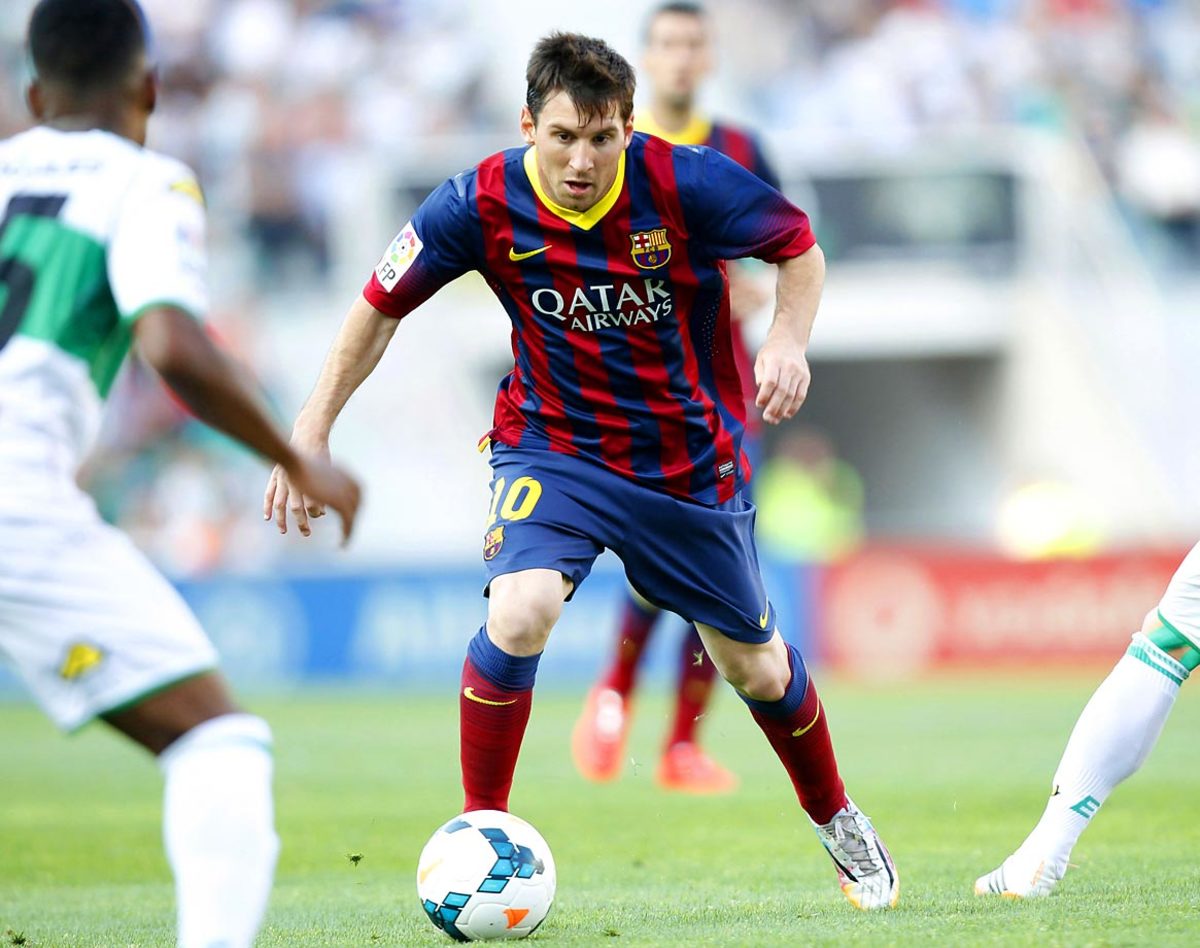
Despite his obvious talent and immense contributions in conquering Europe with FC Barcelona, Messi’s biggest criticism has always been a perceived lack of similar productivity with the national team. A World Cup on his home continent, with the best Argentina team of the last few cycles around him, should be an opportunity to break that streak.
Ángel di María, Argentina
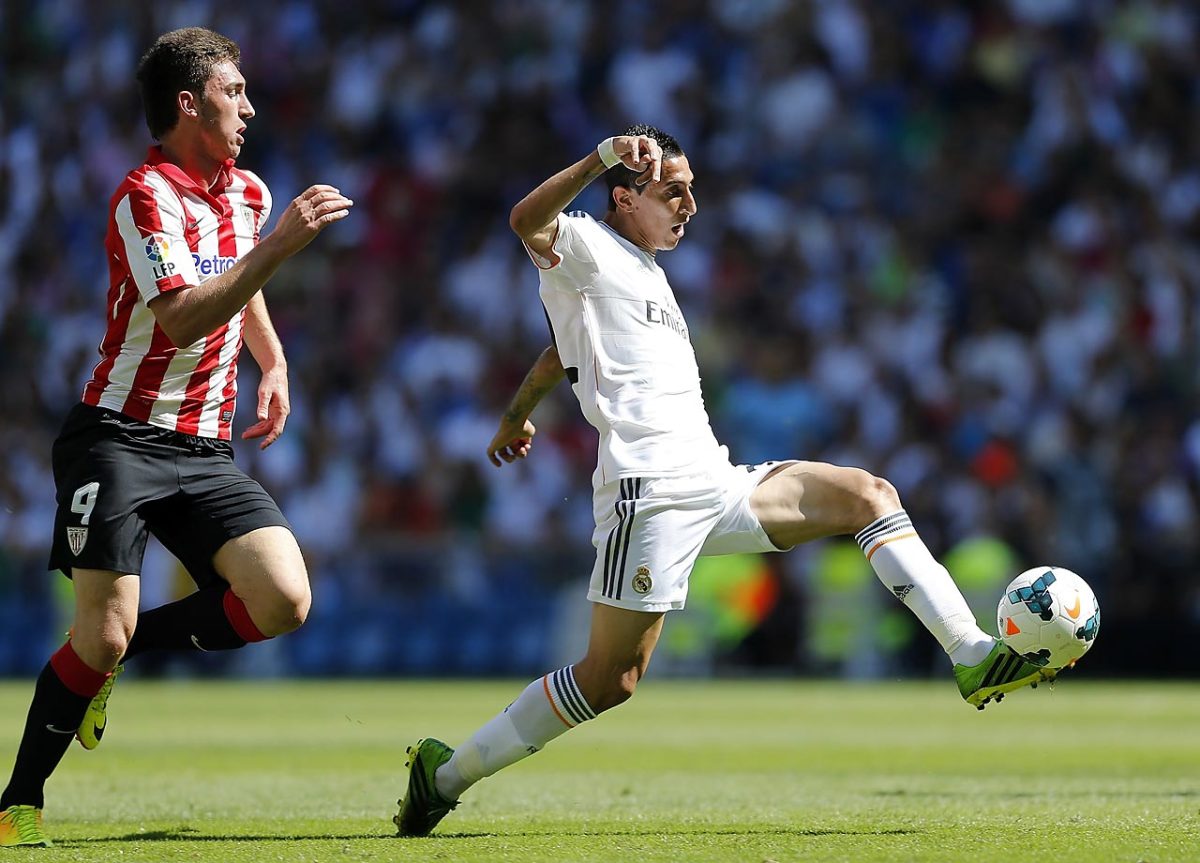
The star of Real Madrid’s Champions League final triumph, di María is a tireless midfielder who combines an explosive change of pace with excellent dribbling ability to unlock defenses. His work rate allows him to continue at the same pace all game, long after opponents have dropped off.
Luis Suárez, Uruguay
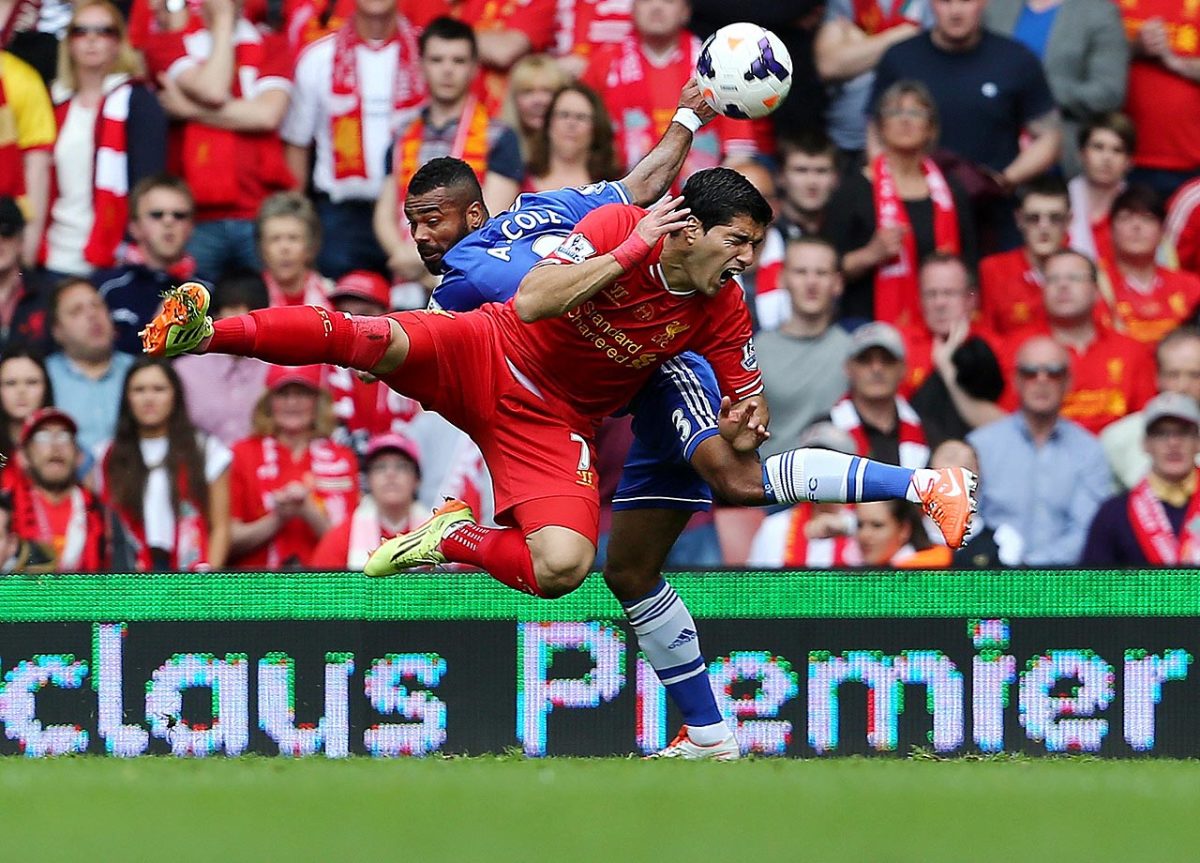
Probably the most controversial and divisive player on the planet, there is no doubting Suárez’s ability despite the headlines he accrued in the past seasons. He was voted the best player in the English Premier League by his peers this season, showing the respect he receives among those who know him best.
Arjen Robben, Netherlands
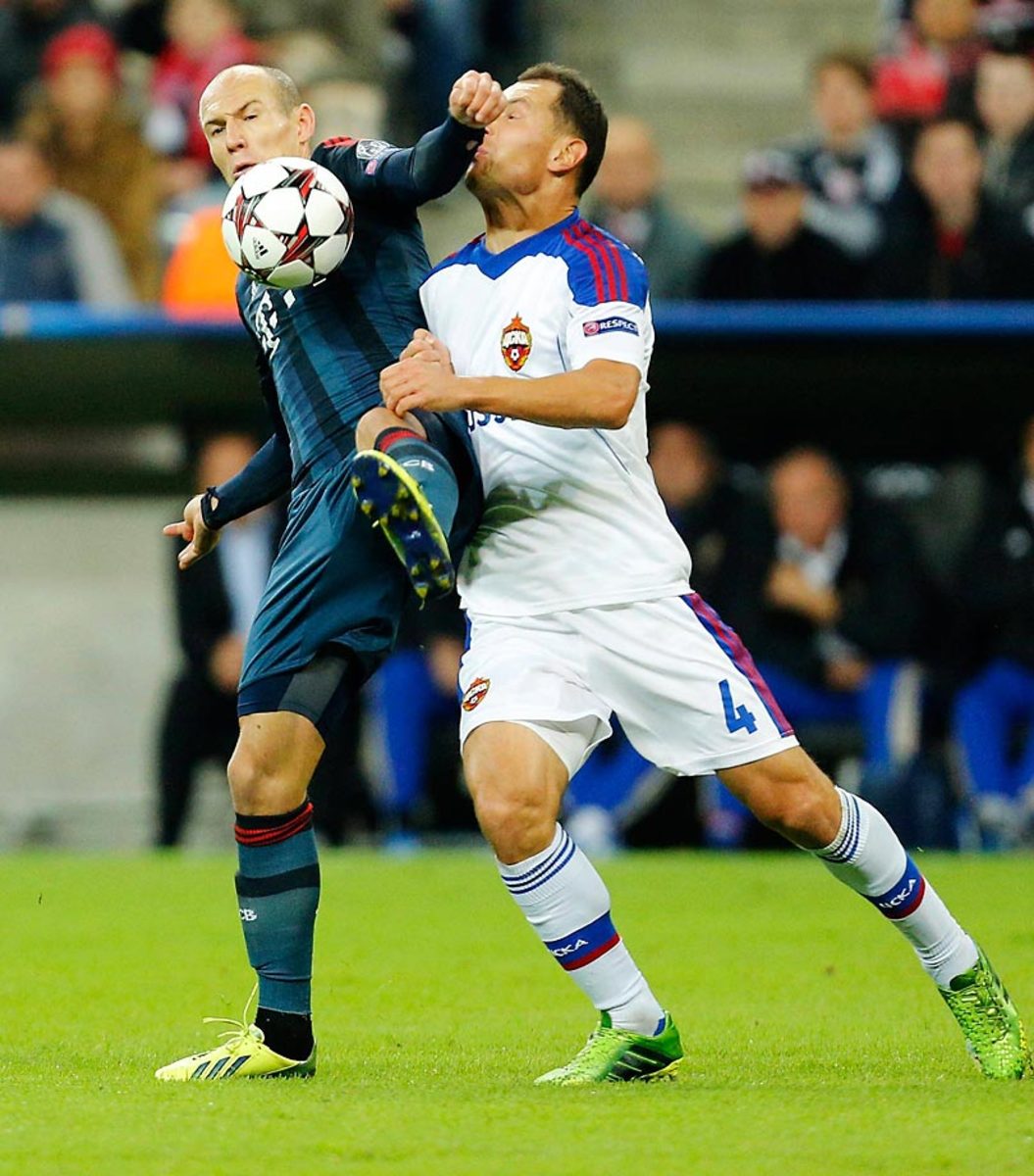
Despite the criticism of being one-footed and a diver, Robben consistently produces for club and country. He’s not strictly a goal scorer, but he seems to pop up in the right place when his team needs one, including in the 2013 Champions League final for Bayern Munich when he scored the late winner — with his left foot, of course.
Neymar, Brazil
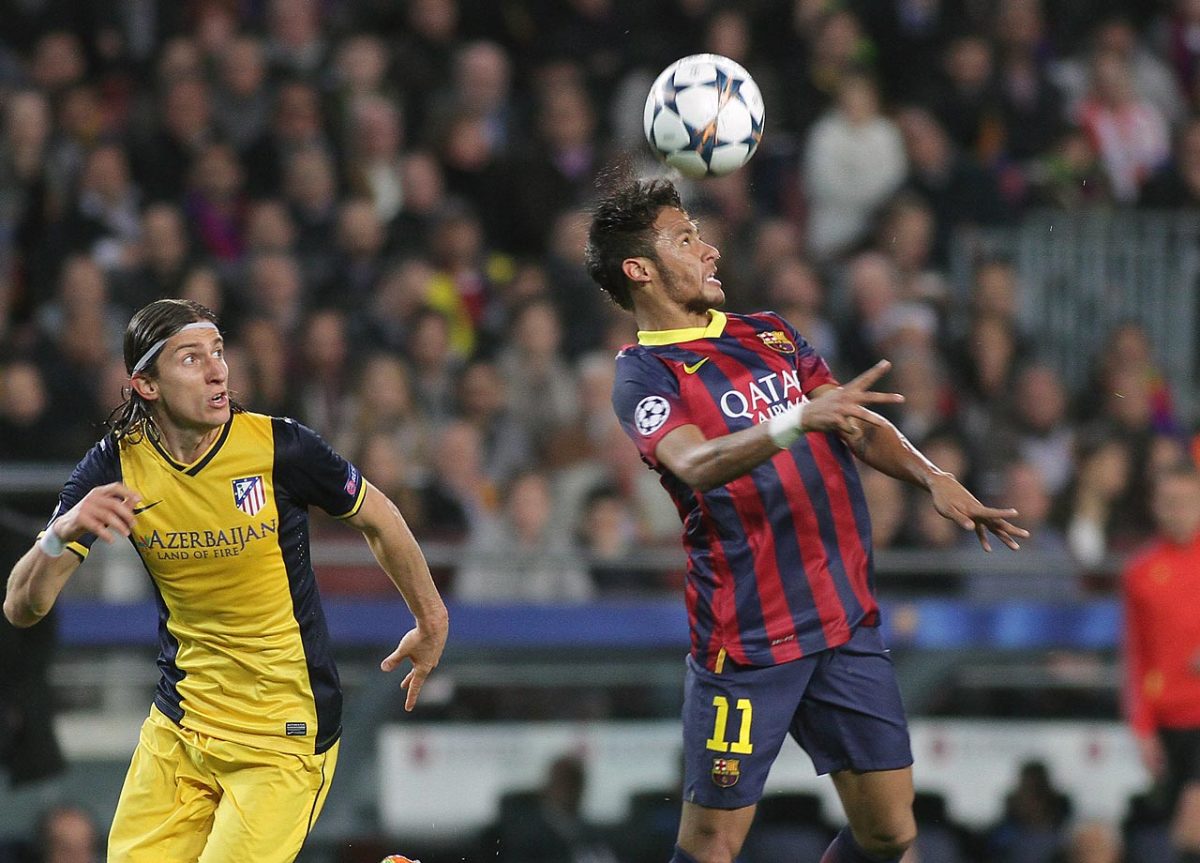
After dominating the Brazilian league, Neymar moved to play alongside Lionel Messi and FC Barcelona this season. Injuries and a slow learning curve stunted his productivity, but his new fans did get to see his ability in flashes. The Brazilian national team might be more in his comfort zone, marking a return to the nation he carried to the 2013 Confederations Cup win.
Wayne Rooney, England
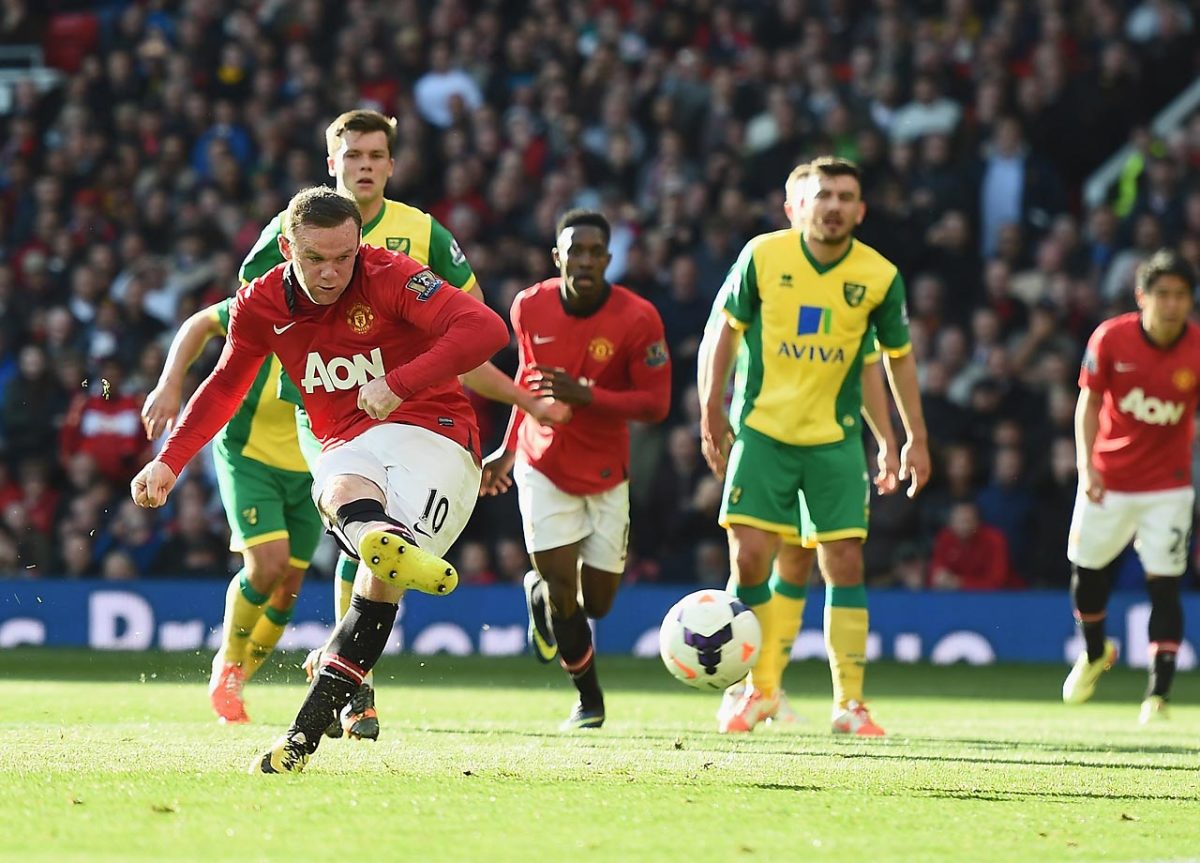
Rooney’s productivity didn’t drop with Manchester United’s league and continental fortunes. He scored 19 goals in all competitions, eclipsing his previous season, and he coupled that with seven goals for England in its World Cup qualifying campaign.
Mario Balotelli, Italy
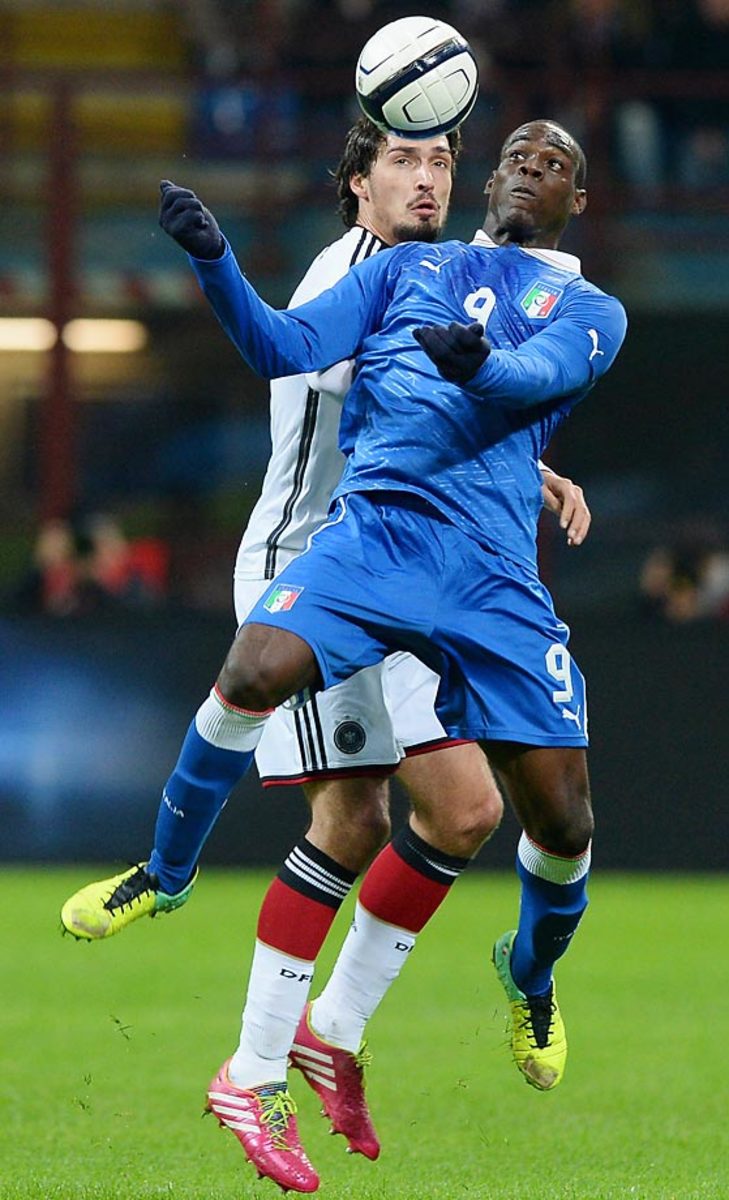
Balotelli has taken heavy criticism for his periodically immature outbursts and a supposed lack of discipline, but a return to Serie A with AC Milan also brought with it an outburst of goals. He scored 18 in all competitions in 2013-14, as well as two in Italy’s Confederations Cup effort last summer.
Andrea Pirlo, Italy
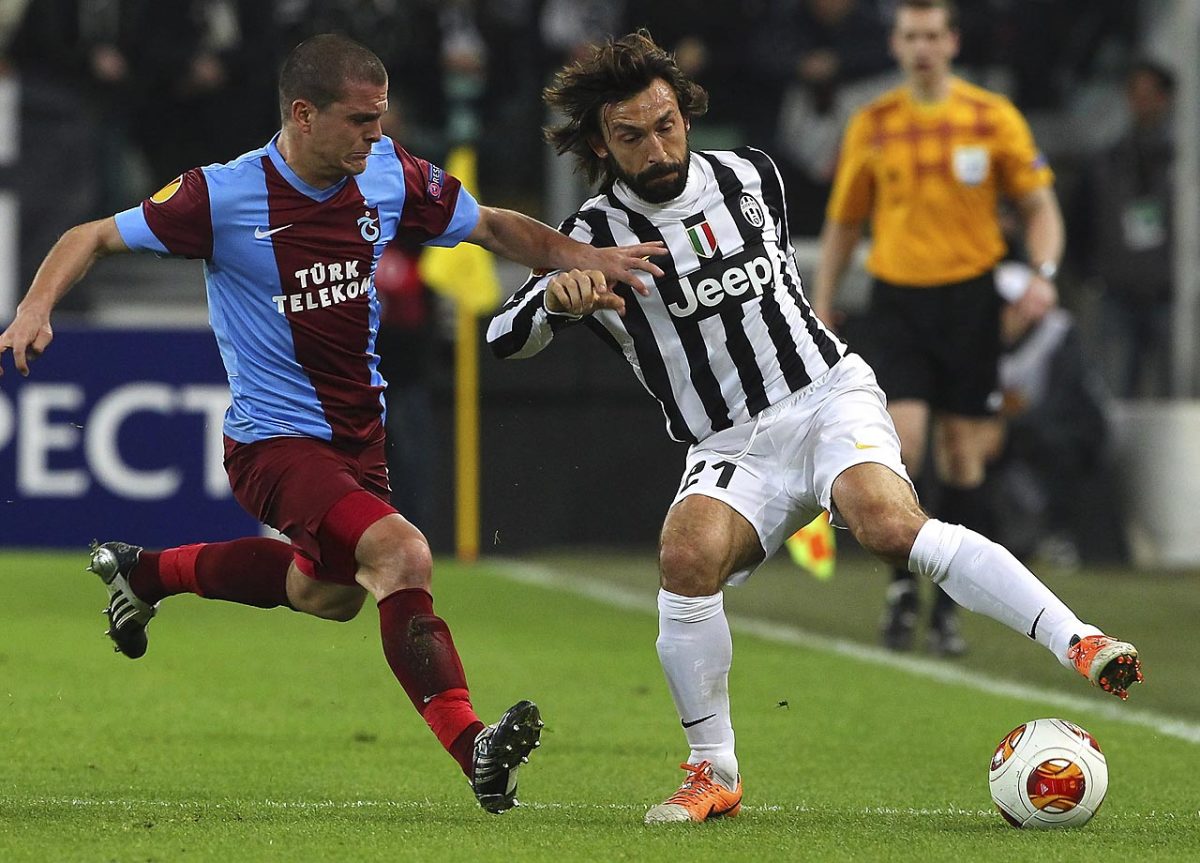
Pirlo may appear ageless, but his game has never been predicated on physicality. While his body gets older, his mind only gets sharper, allowing him to maintain his form as one of the world’s best playmakers. Pirlo can also smack in free kicks with the best of them, making him a threat in multiple phases of play.
Didier Drogba, Ivory Coast
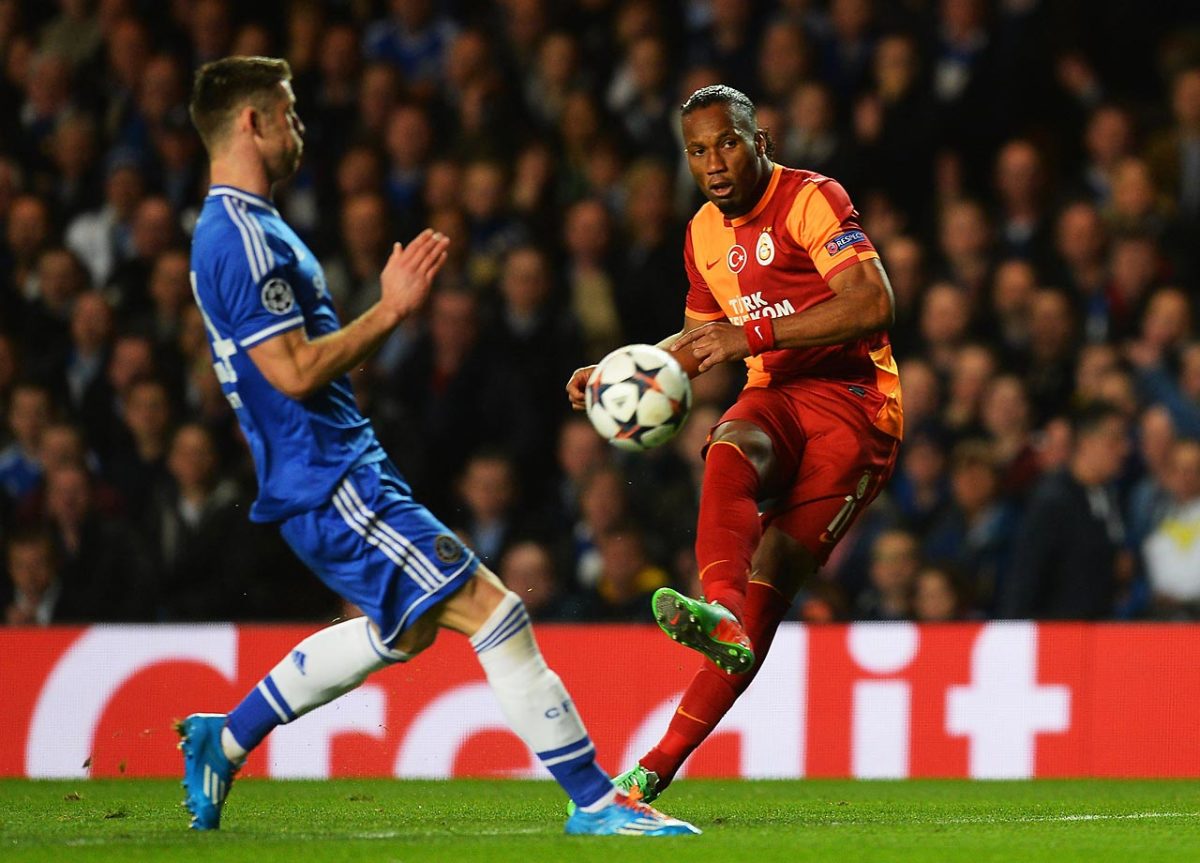
This World Cup will be Drogba’s last stand on the international level. Compared to his club numbers, the 36-year-old’s national team goal-scoring record has been mediocre, his own form personifying a larger listlessness among his nation at the highest levels. He has one last chance to turn the narrative around.
Karim Benzema, France
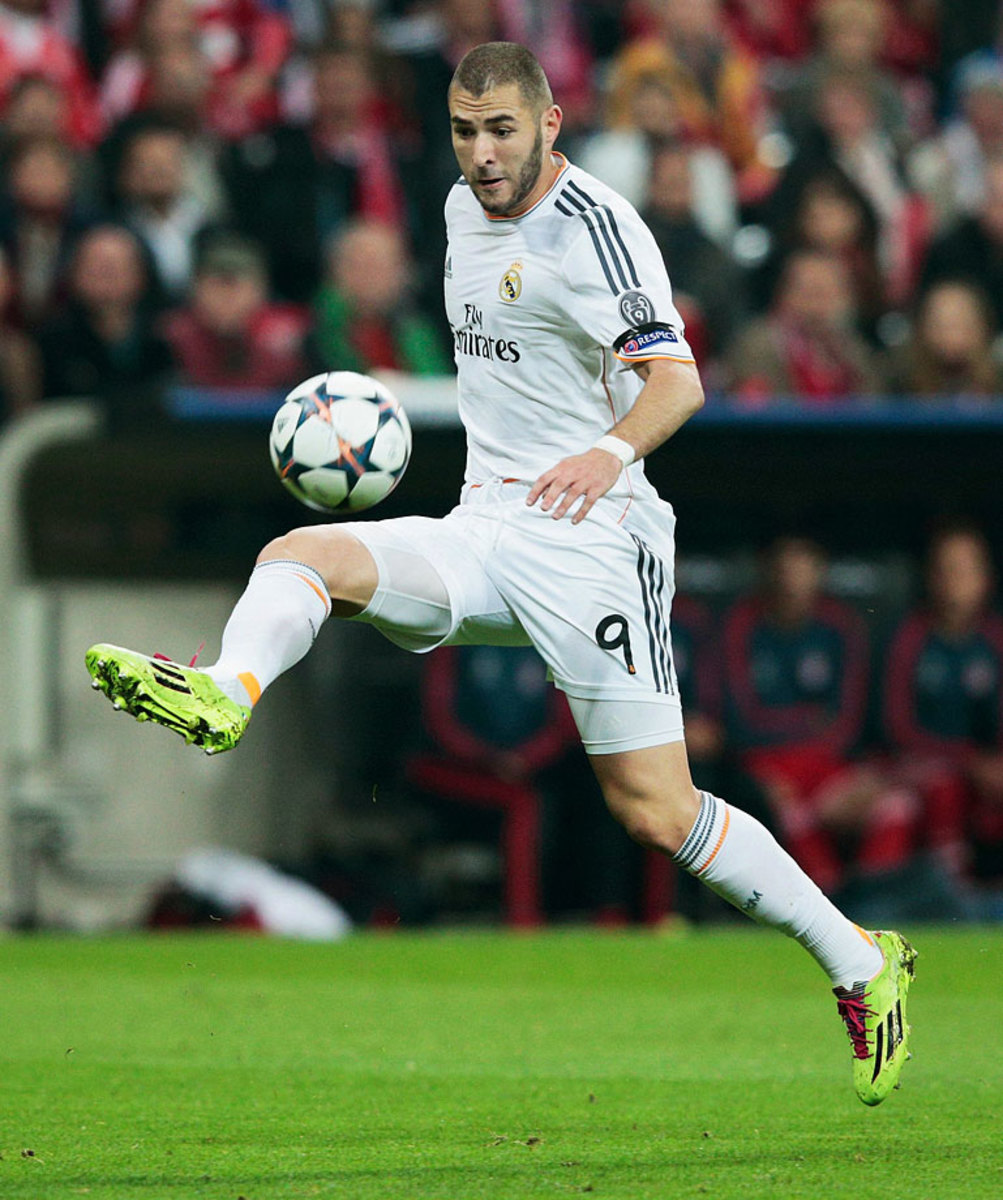
The 26-year-old Real Madrid forward helped the Spanish side to a Champions League title, scoring 24 goals in all competitions, including five on Europe’s biggest stage. With compatriot Franck Ribery ruled out for the World Cup with a back injury, the onus falls even more on Benzema to lead Les Bleus’ attack.
Keisuke Honda, Japan
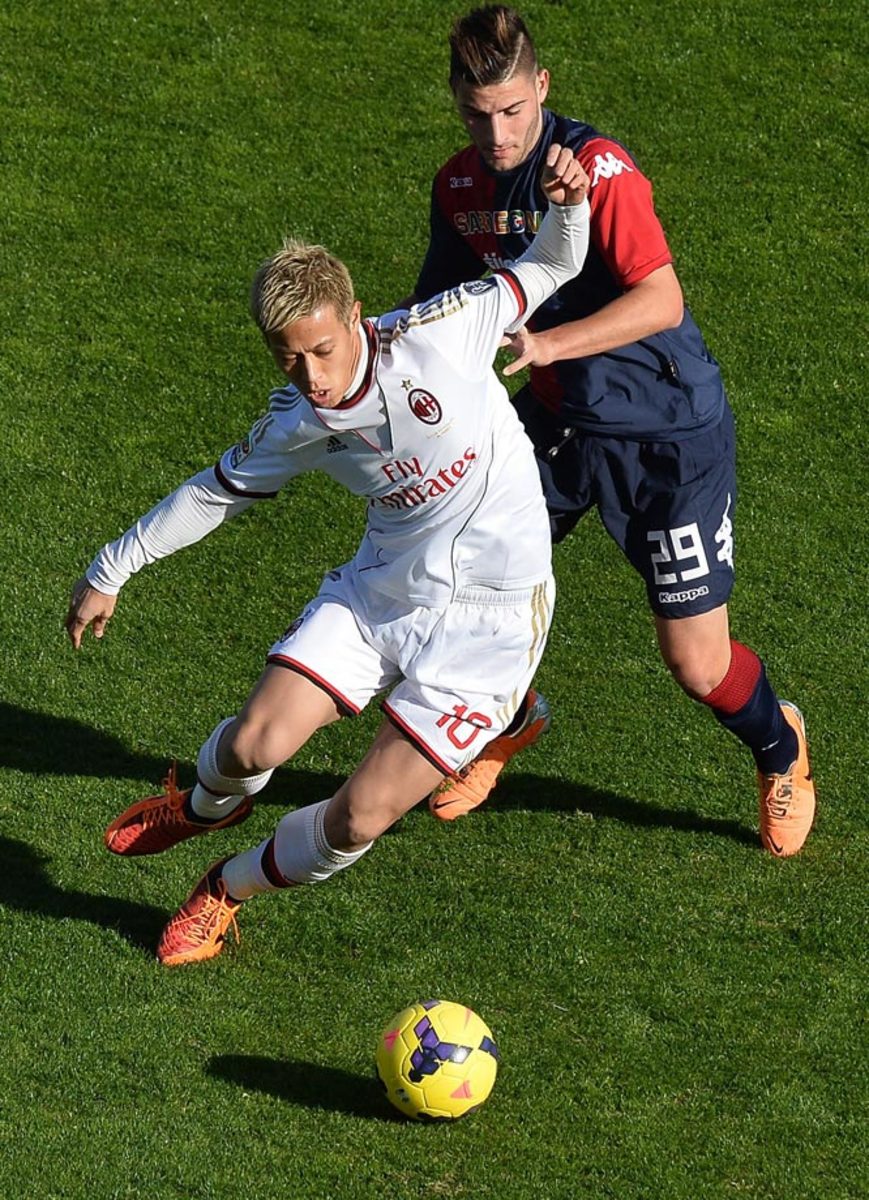
Honda finally moved to a big club in January, joining AC Milan from CSKA Moscow. He has been an important player for his national team since bouncing between the Dutch first and second tiers with VVV-Venlo, working his way up gradually and patiently. Honda will be Japan’s primary playmaker in Brazil.
Paul Pogba, France
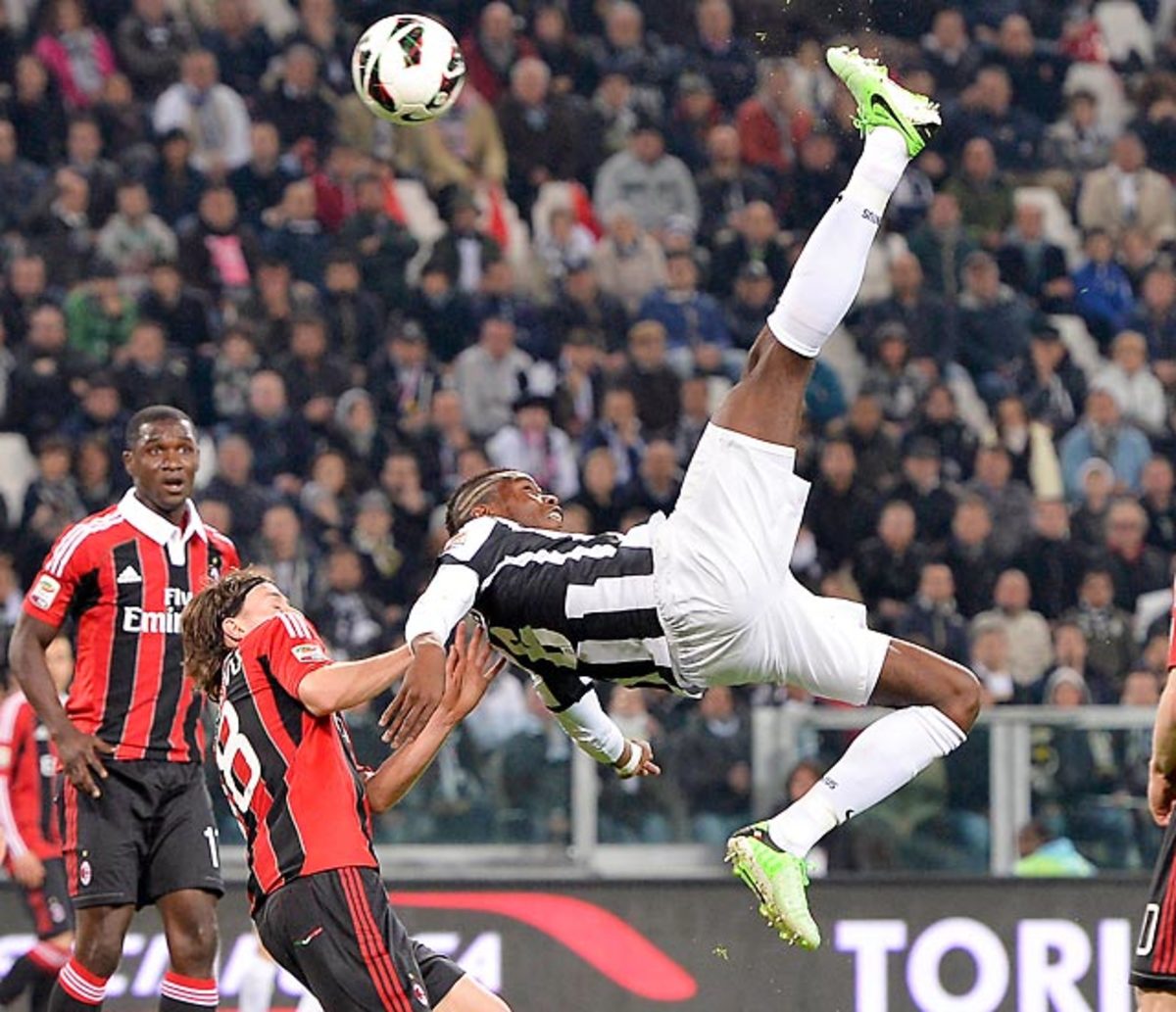
In many ways, Pogba is similar to Mario Balotelli. He had a dramatic falling out with his manager in England, leaving Manchester United for Juventus in Italy. Since then, he has become a spectacular-goal machine, regularly cutting inside from the right wing to unleash thunderous strikes past hapless goalkeepers.
Eden Hazard, Belgium
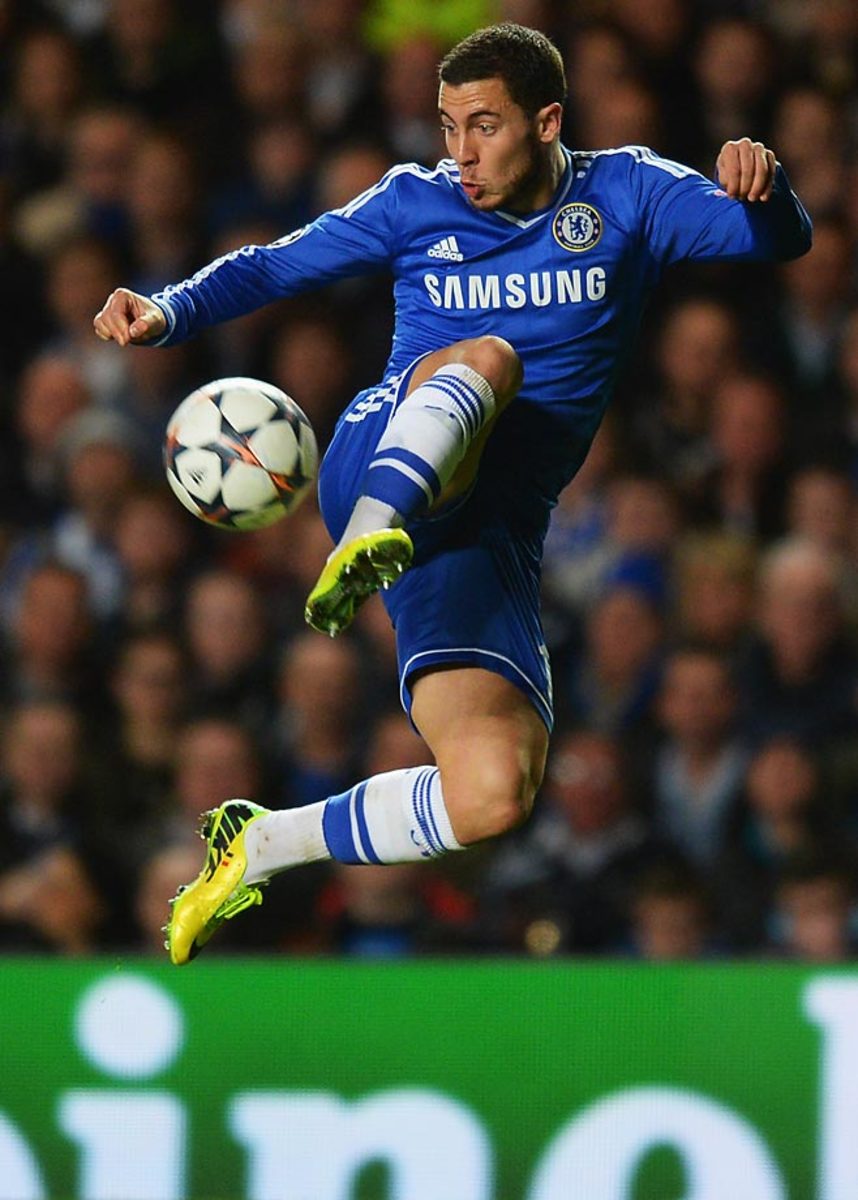
After already winning the Ligue 1 Player of the Year award twice, Hazard reminded everybody that he’s still far from his prime, winning the Young Player of the Year award in England this season. Hazard has become the subject of transfer rumors since Chelsea’s season ended, sparked by comments in the press by him and manager José Mourinho that suggest he might be losing favor.
Yaya Touré, Ivory Coast
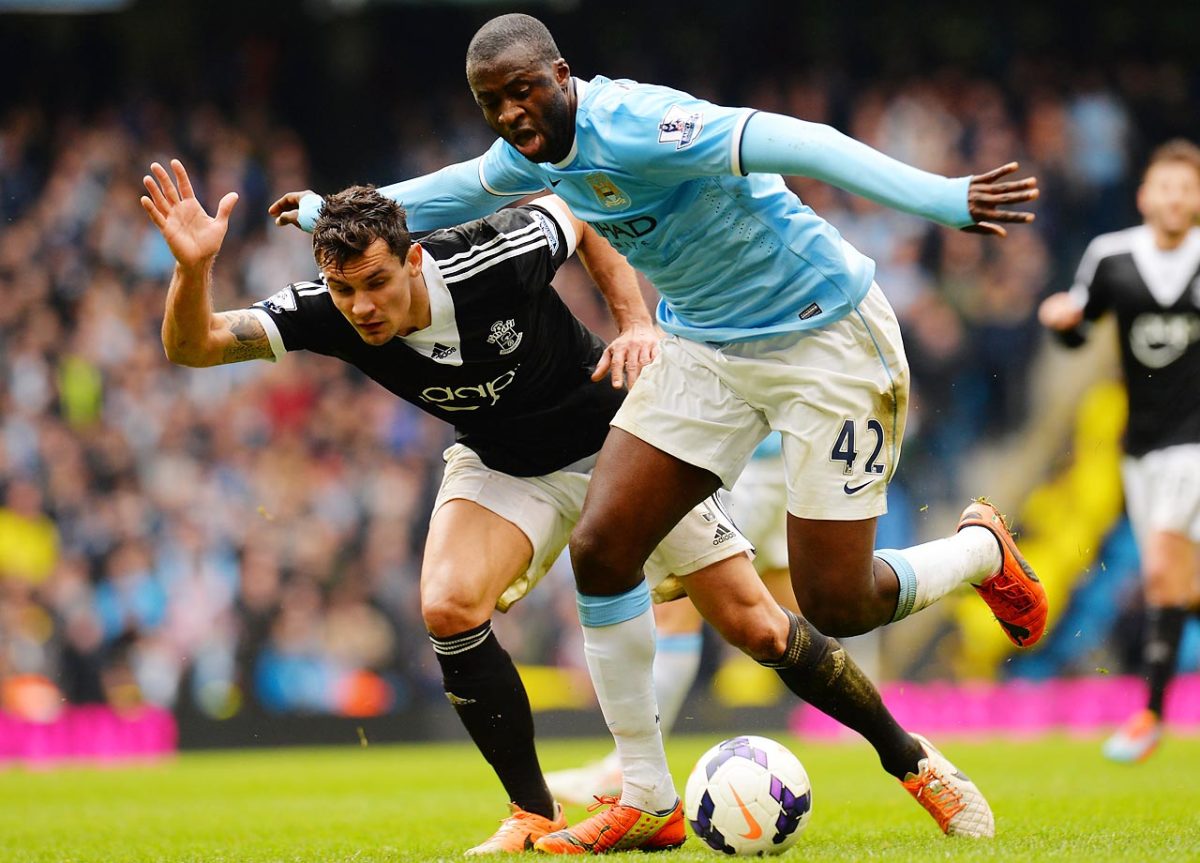
With a weak defense behind him, Touré will be key in any success the Ivory Coast has at the World Cup. He surged forward to score 24 goals for Manchester City last season, but his physical presence and defensive ability will likely be easier to notice against the dangerous attacks of Colombia and Japan.
Michael Bradley, United States
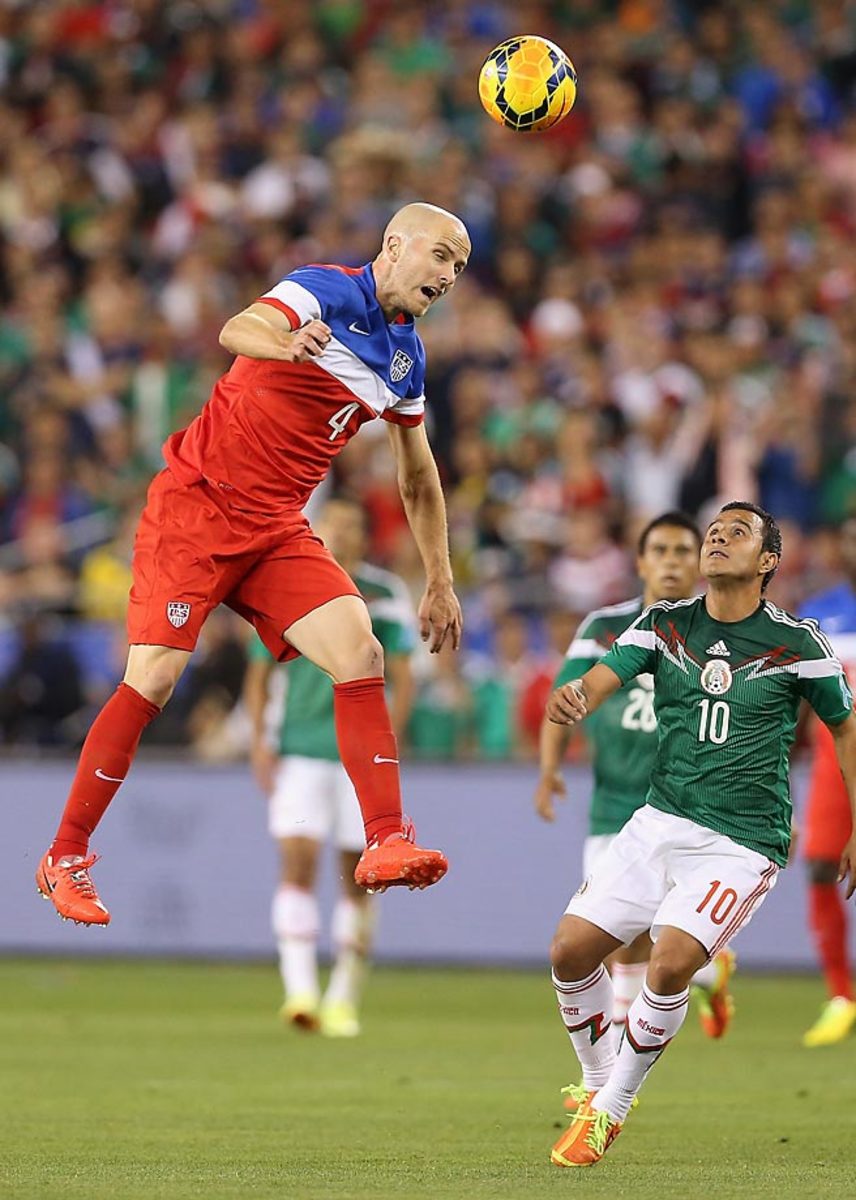
Bradley is the United States’ version of Xavi, although extremely watered down. Rarely does a U.S. game go by where his pass-completion percentage is below 90, and his late runs from midfield add another wrinkle to the American counterattack. Above all, Bradley’s leadership ability will be vital considering the difficult road the U.S. faces to progressing beyond the group stage.
Manuel Neuer, Germany
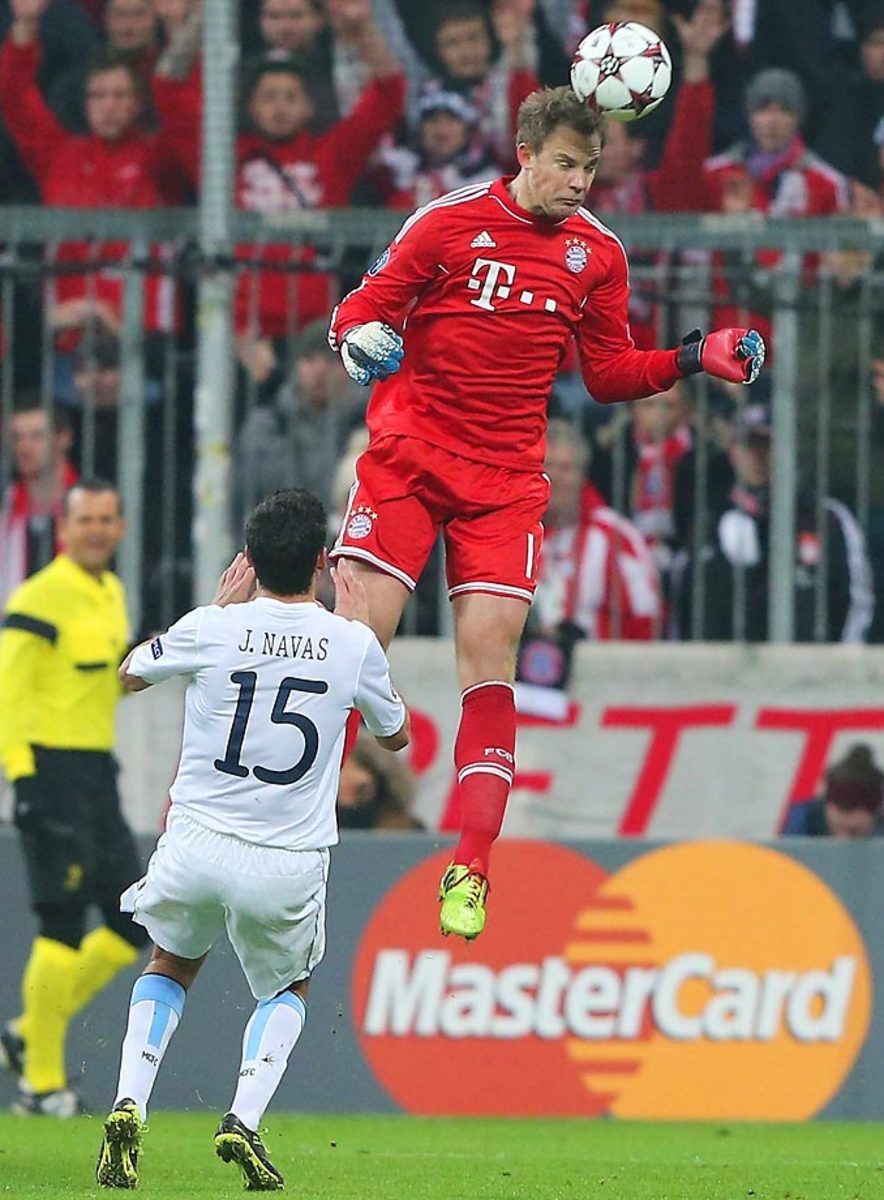
After biding his time as a back-up for Germany and at Schalke in the lower tiers of the Bundesliga, Neuer has emerged as the best goalkeeper in the world since Euro 2012 and his move to Bayern Munich the previous summer. He is the complete package: a shot stopper, good on crosses and excellent with the ball at his feet.
Arturo Vidal, Chile
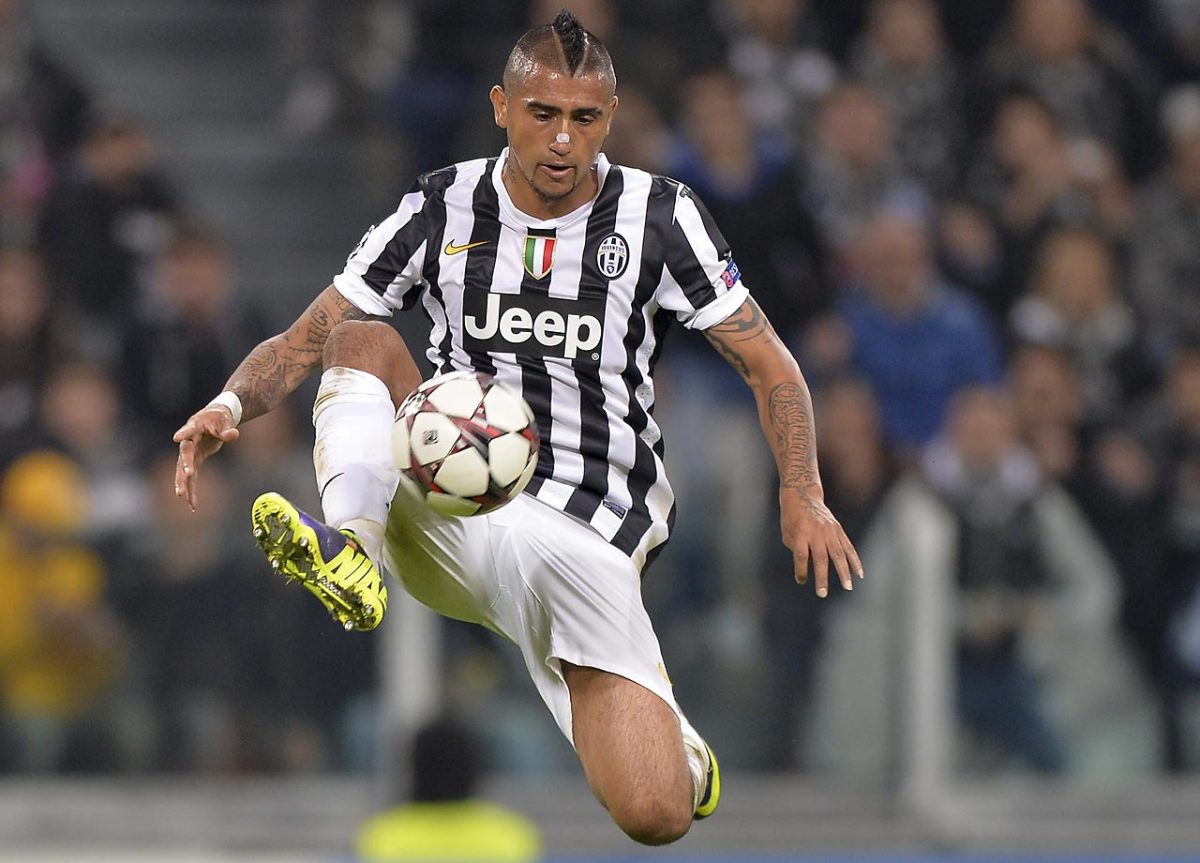
Vidal was Juventus’ leading scorer in continental competition last year, saving his best play for when the lights shined brightest. He works alongside Andrea Pirlo in that midfield, providing the engine as a box-to-box midfielder to complement the older Pirlo’s ability to pick passes. For Chile, Vidal will have to play a larger role.
Alexis Sánchez, Chile
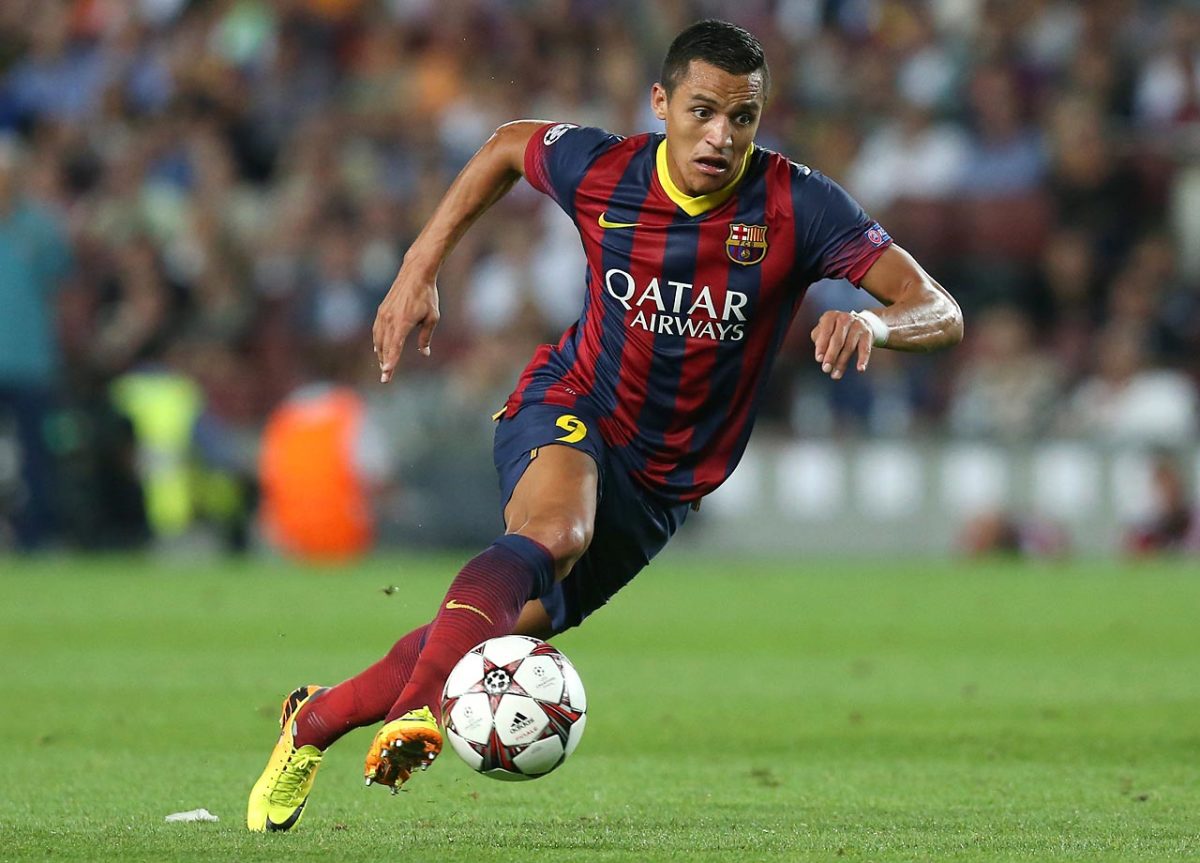
As a frequent option off the bench for FC Barcelona, Sánchez injects pace and one-on-one ability into any game. The way he runs at defenders unsettles back lines, often creating opportunities for teammates by dribbling to the end line and cutting the ball back into onrushing attackers.
Xavi, Spain
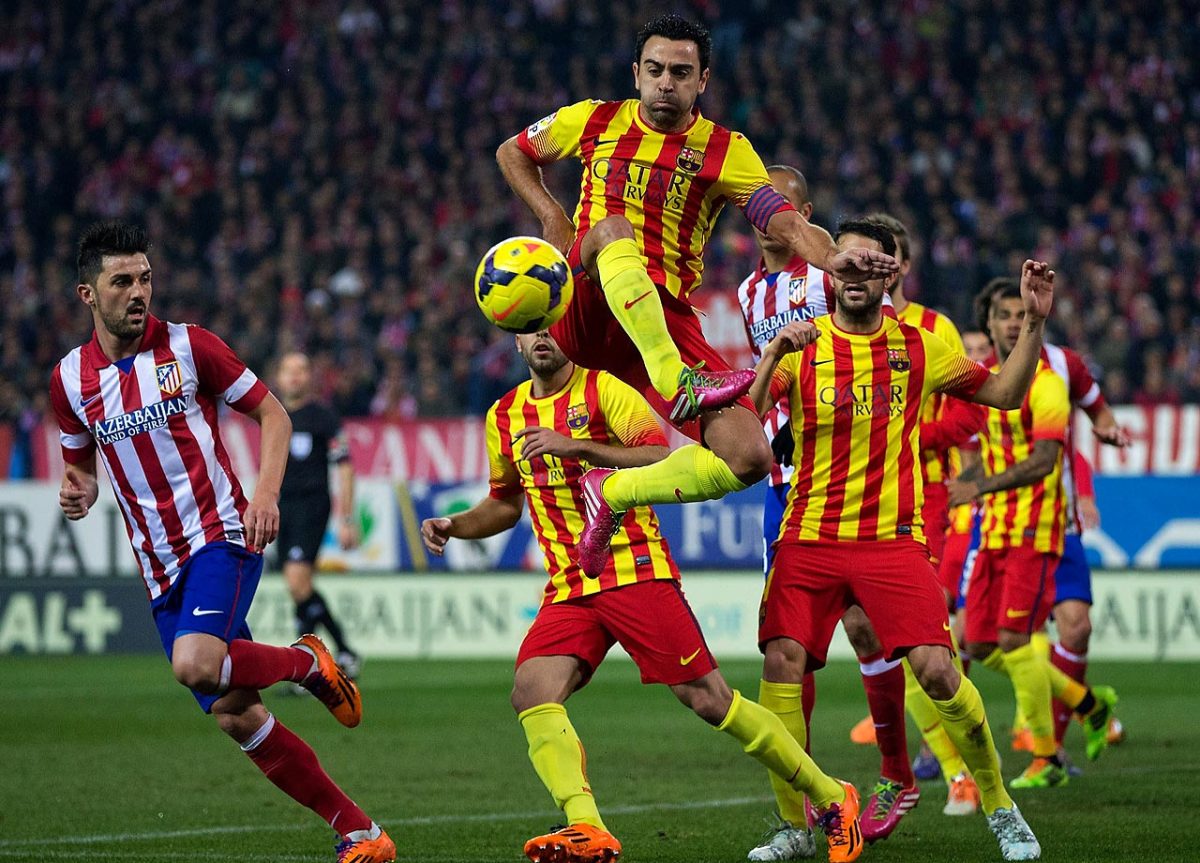
Barcelona and Spain’s midfield maestro, few players in the world can pass the ball like Xavi. His high completion percentage shows the beauty of the simple game and how effective it can be if coupled with next-level soccer IQ. Spanish manager Vicente del Bosque will have to find the right partners for Xavi, as Andrés Iniesta and Sergio Busquets are on the club side.
Andrés Iniesta, Spain
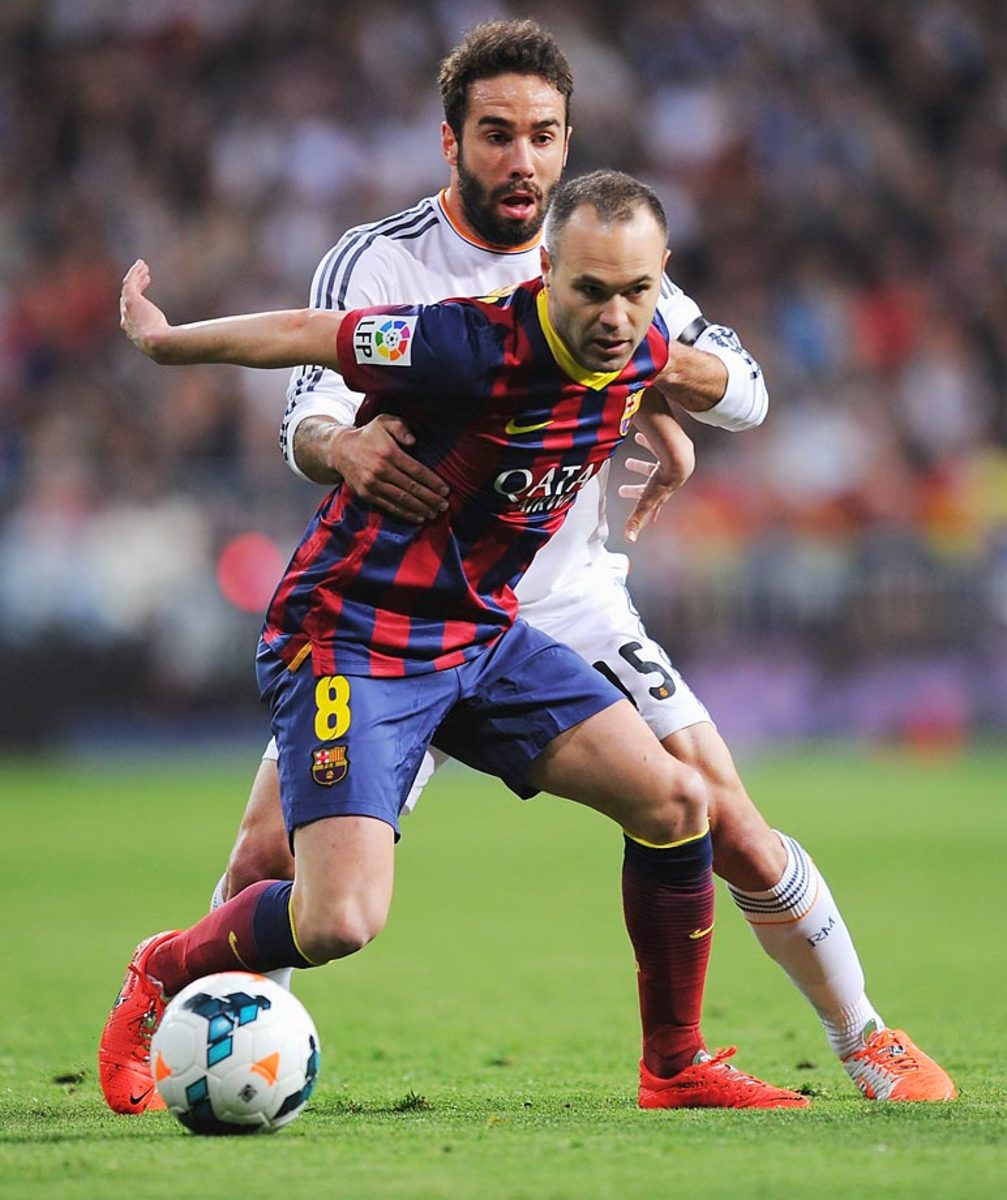
With Cesc Fàbregas playing a larger role in central midfield for Barcelona under Tata Martino, Iniesta had to find a way to impact the game from a different spot. As a result, he became a left-winger in Barça’s 4-3-3 that thrives on overloading the middle and providing killer through passes to the forward line.
Luka Modrić, Croatia
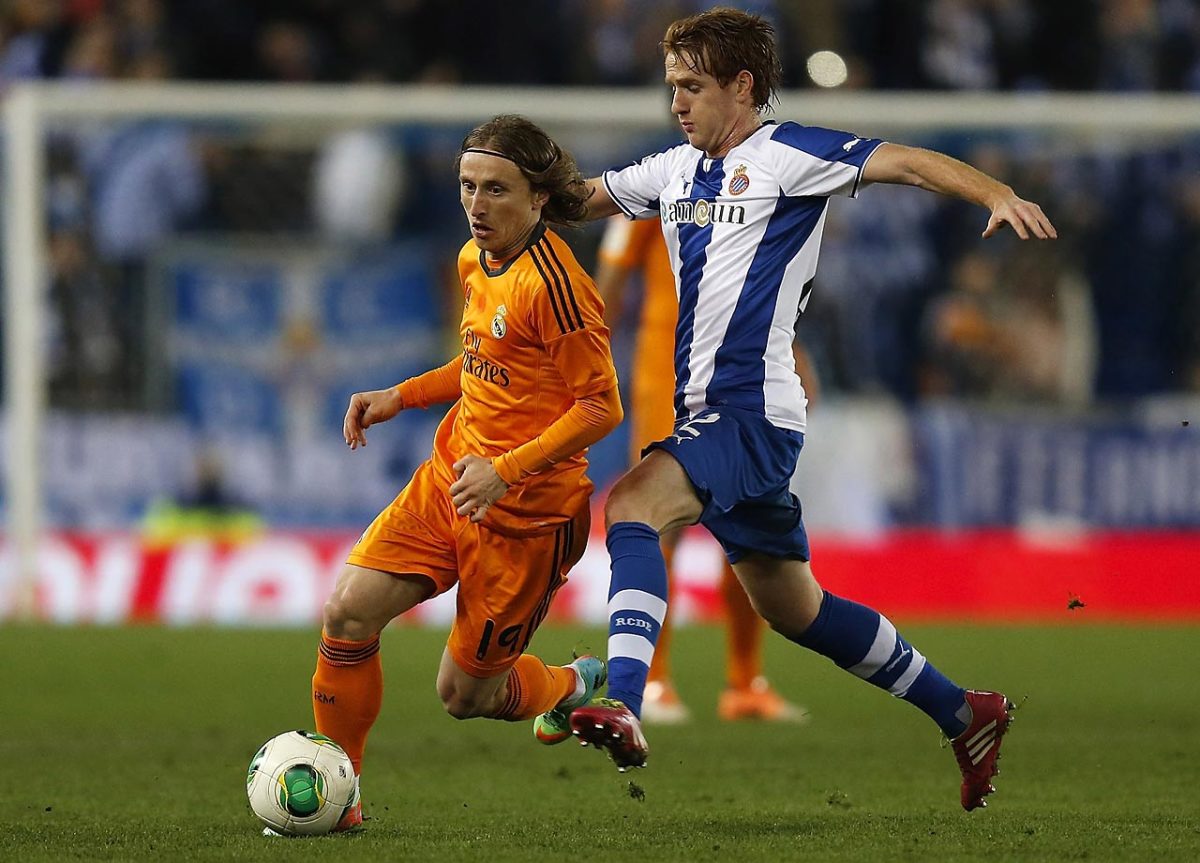
Croatia has the ability to pull off surprise results in Brazil, not least of which would be against the host nation in the opening game. Modrić is well equipped to lead his team and control any game’s tempo from central midfield, along with partner Ivan Rakitić. Modrić is a complete player, proficient with the ball at his feet in both passing and dribbling, as well as maintaining a strong presence in front of the defense.
Robin van Persie, Netherlands
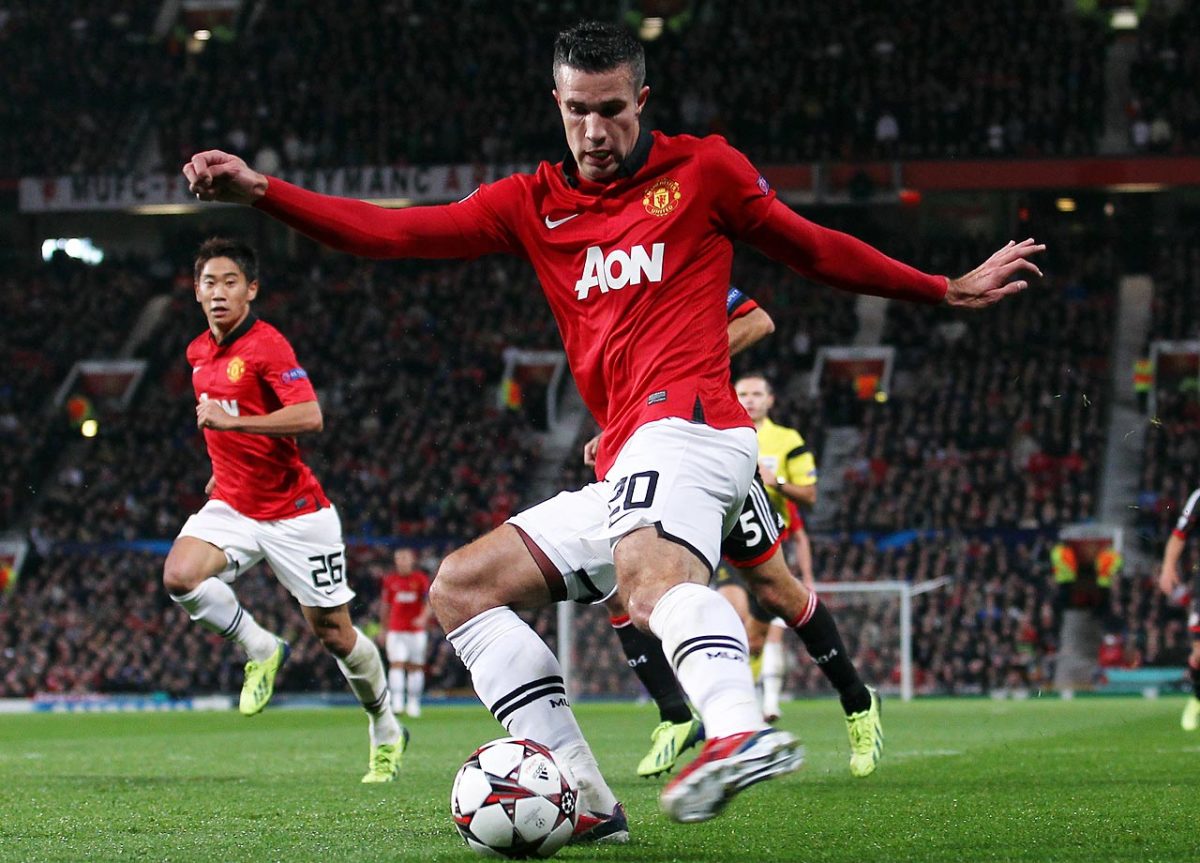
Under Dutch manager Louis van Gaal, van Persie has found the best international form of his life. He scored 11 goals for the Netherlands in qualifying for Brazil 2014, only failing to score in three competitive appearances since Euro 2012. Van Gaal will join van Persie at Manchester United after the World Cup, giving him more of a reason to want to impress his boss.
Edin Džeko, Bosnia-Herzegovina
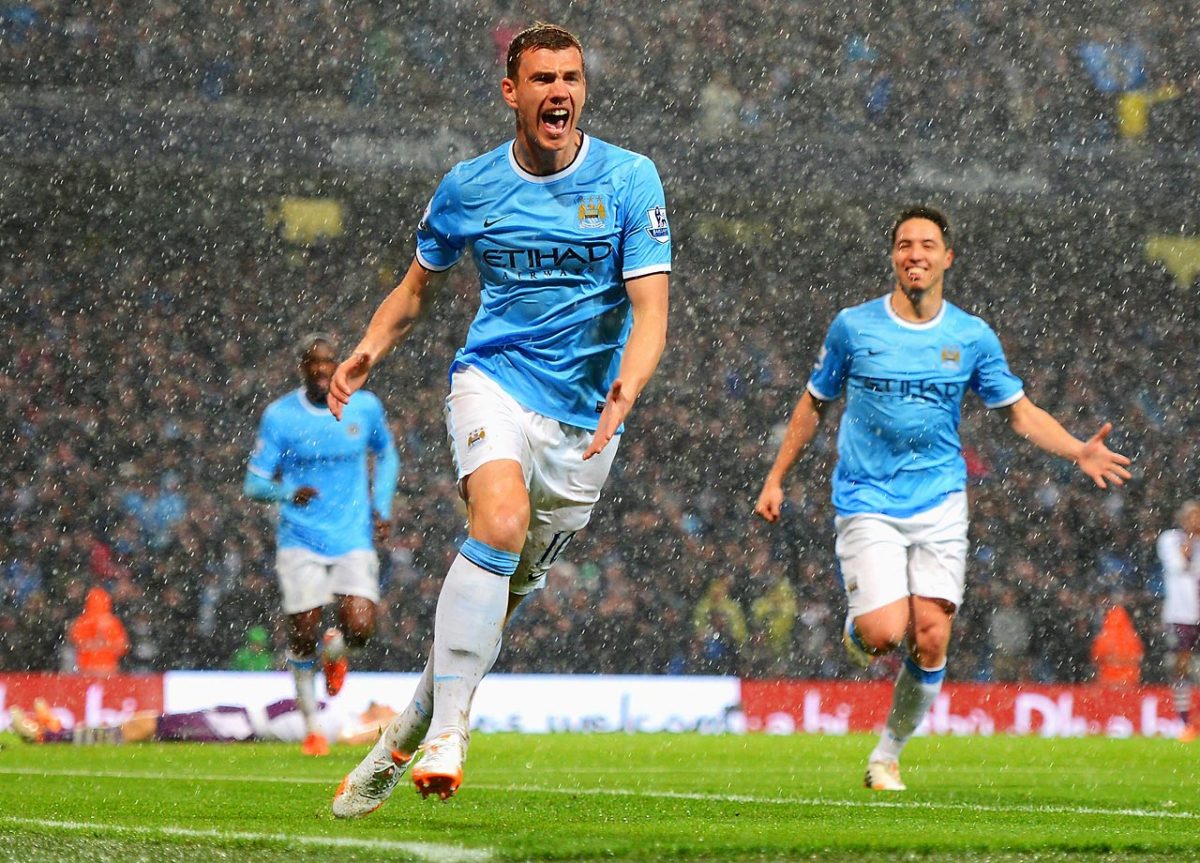
Džeko finished the season for English champion Manchester City in great form, scoring five goals in his last four appearances. Most of the times Džeko scores, he seems to add another one later in the game, showing his never-satisfied mentality. The big target striker was his country’s leading scorer in qualifying as well, scoring 10 goals in 10 games.
Mesut Özil, Germany
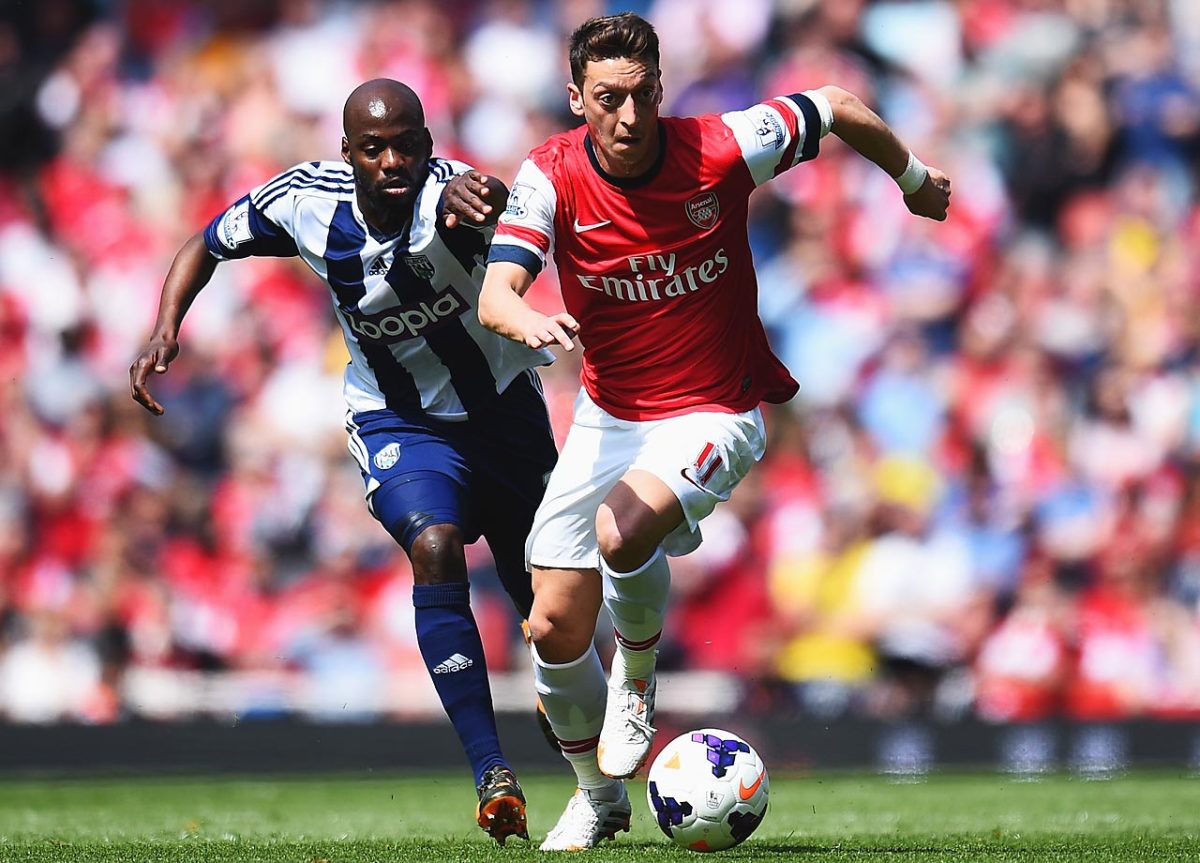
After moving to Arsenal last summer, Özil’s playmaking ability shined with his new club. He can both pass the ball and finish with late midfield runs, playing deeper in the central-midfield block for both his club and Germany. It feels like Özil has been around forever, largely due to making his first-team debut with Schalke at age 17, eight years ago.
